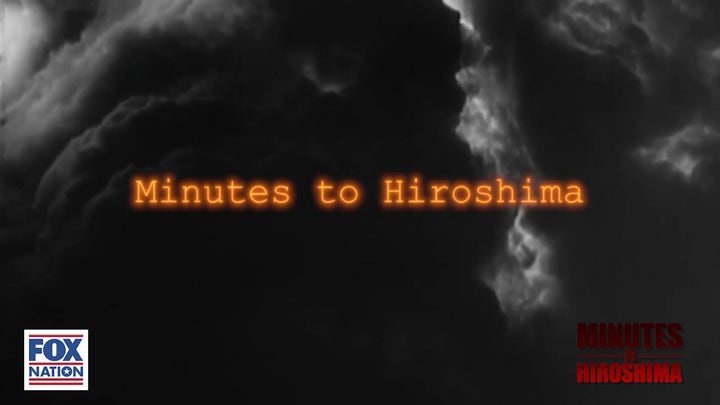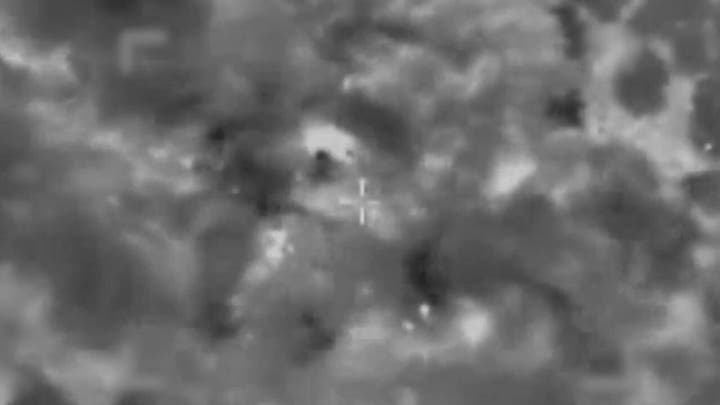JERUSALEM – The White House is facing withering criticism that President Biden’s ‘Don’t’ attack warnings to Iran are not being taken seriously after Tehran-backed terror militias injured American military personnel at the Ain al-Asad air base in western Iraq on Monday and is suspected of another attack in Syria on Friday.
On Saturday, Biden once again issued a ‘Don’t’ when asked by reporters what his message to Tehran was. Critics argue his Iran policy is adrift and his warnings to the Islamic republic and its proxies in October and April have not deterred them.
Following the Monday attack in Iraq, Biden, joined by Vice President Kamala Harris, met with his national security team on the latest developments in the Middle East and said on X that in addition to discussing the threats from Iran and its proxies, ‘We also discussed the steps we are taking to defend our forces and respond to any attack against our personnel in a manner and place of our choosing.’
Former Secretary of State Mike Pompeo posted an interview with Fox News’ Bill Hemmer on X saying, ‘The Administration keeps saying ‘don’t’ to Iran – but then does nothing to impose costs. This weakness means the risk from Iran continues to grow.’ Biden said ‘Don’t’ when asked if he had a message for Iran, days before Iran’s first attack against Israel in April.
On Friday, yet another attack against a U.S. installation in Syria occurred with U.S. officials telling Fox News that a drone struck the area, causing minor injuries to U.S. and coalition personnel. A damage assessment was still ongoing.
Iran’s increased jingoism in the Middle East is linked to the Biden administration’s failure to reestablish meaningful deterrence to blunt Tehran from launching new attacks, according to one expert.
‘So long as the U.S. remains fundamentally in the business of absorbing strikes by Iran-backed militias against its basing infrastructure and regional force presence, these attacks can be expected to continue. Militia rocket and mortar and drone attacks are one way Tehran chooses to fight America on the cheap,’ Behnam Ben Taleblu, a senior fellow at the Foundation for Defense of Democracies, where he focuses on the Iranian regime threat, told Fox News Digital.’
He added, ‘With such lopsided response ratio, at least 172 strikes since Oct. 7 and only a handful, around 10 or so, responses, it’s no surprise that the deterrence brought about by the last time Washington meaningfully used force against these groups in early 2024 has worn off.’
The Iran expert continued, ‘Deterrence is iterative. That fact cannot be minimized in the Middle East today. The rise in strikes by these militias may be tied to part of Iran’s larger revenge strategy after the killing of [Ismail] Haniyeh [a Hamas terror leader], the trickle of attacks starting up since this summer have more localized considerations by the militias in Iraq and Syria, and are part of a larger plan to generate a cycle of violence that forces America from the region.’
Fox News Digital approached the State Department about the lack of an American military response to the Katyusha rockets that were fired at the base.
Before the latest attack in Syria, a State Department spokesperson told Fox News Digital, ‘The Iran-aligned militia attack on U.S. forces stationed at Al-Asad Airbase in western Iraq marks a dangerous escalation and demonstrates Iran’s destabilizing role in the region. As President Biden has made clear, we will not hesitate to defend our people and hold responsible all who harm our U.S. personnel.’
Sabrina Singh, a deputy spokesperson at the Pentagon, said on Thursday about the attack, ‘It was two rockets launched by what we believe to be an Iranian-backed Shia militia group that impacted Al-Asad Airbase in Iraq. There was a third rocket that was intercepted before it impacted the base. In terms of how these rockets got through, look, that’s something that CENTCOM is going to review and is reviewing right now. We want to make sure that this doesn’t happen again.’
Four service members and one contractor were injured during Monday’s attack, according to the Pentagon spokesperson.
Joel Rubin, a former State Department official during the Obama administration, defended Biden’s policies and told Fox News Digital, ‘The president has made it very clear to Iran that there would be significant consequences if it were to take military action against Israel. In addition to sending additional military craft to the region, he’s working the diplomatic channels to make sure Iran understands this, creating deterrence. While the crisis has not yet fully passed, it’s clear that Iran is thinking twice about its next moves.’
Iran’s main proxies in the Middle East are the Lebanese-based Hezbollah movement, Hamas, and the Houthi movement in Yemen. The Islamic republic has used its vast oil and gas profits over the decades to export its revolutionary Islamist ideology to countries in the Mideast and in the West, including the U.S., where U.S. intelligence revealed Tehran incited anti-Israel protests on college campuses, threatened to assassinate President Trump and is meddling in the presidential election.
Iran has, since 1984, been continuously classified by the U.S. government as the world’s worst state-sponsor of terrorism. Radical Islamists seized power in Tehran in 1979 and declared America as the ‘great Satan.’ Iranian Islamists are also fond of chanting ‘Death to America’ at mass events and in the country’s parliament.
Fox News Digital reported in February that an Iranian manufactured drone fired by a Tehran-backed militia in Iraq killed three U.S. soldiers in Jordan.
Fox News’ Andrea Vacchiano contributed to this report.


